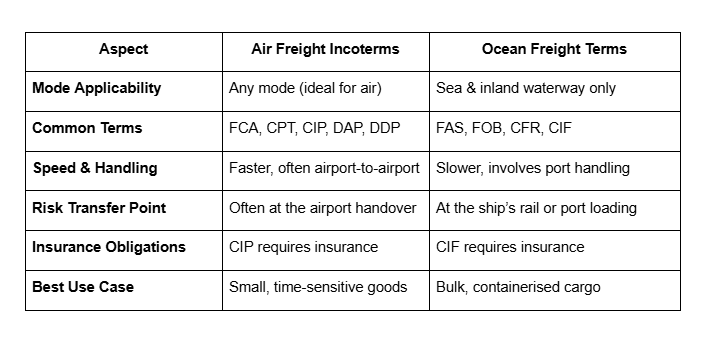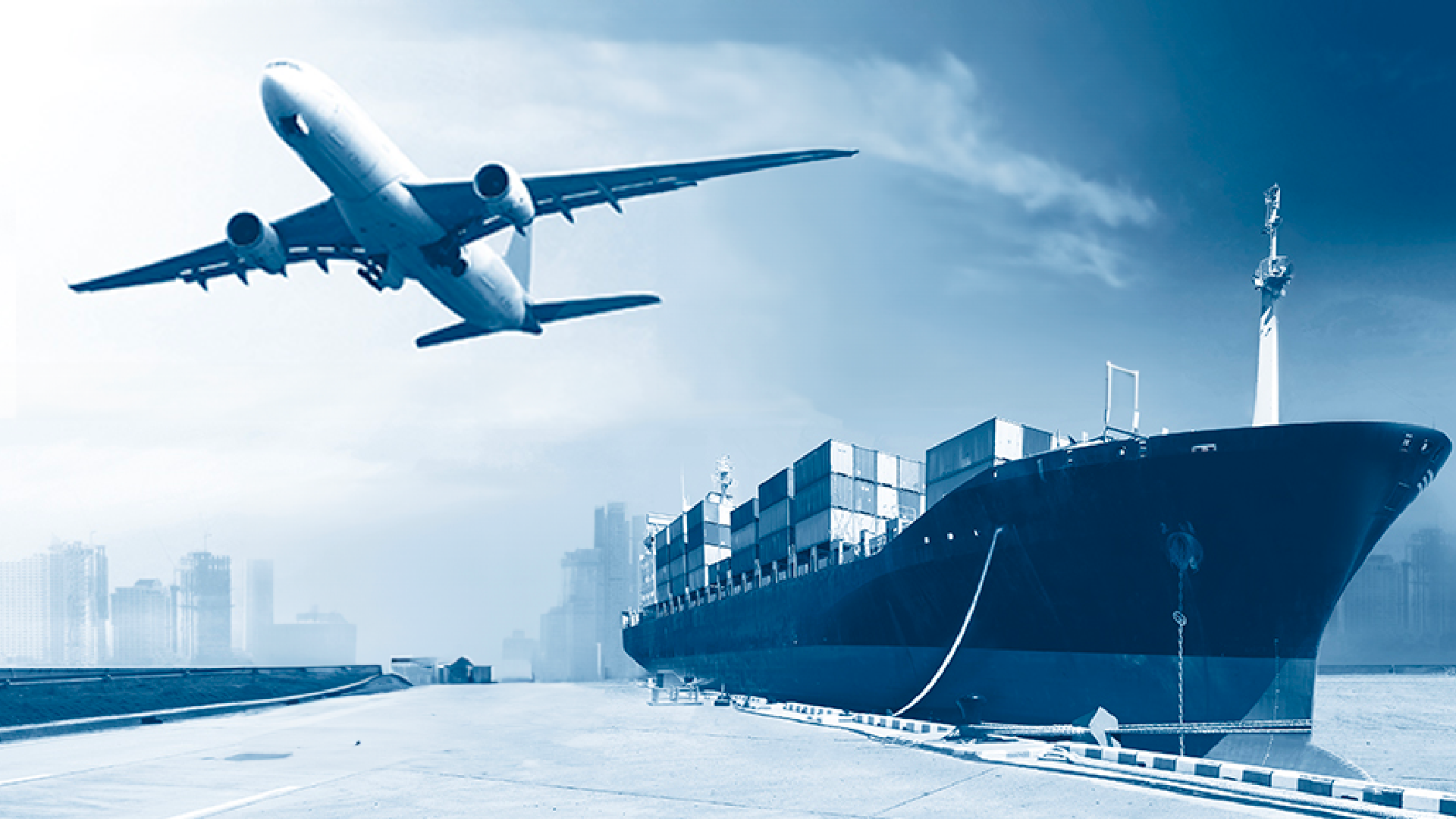Have you or your business ever got involved in managing an international shipment? If the answer is yes, you already know the complexities a shipping mode difference can create. The chosen mode of transportation can decide how smooth your entire shipment process is going to be, from paperwork to customs clearance to Incoterms that are going to be used; it can change everything.
Talking about Incoterms, these are predefined international trade terms used to define and divide the roles and responsibilities of different people involved in different stages of a shipment.
The Incoterms 2020 are widely categorised into two different categories based on mode of transportation. These categories are:
A. Any Mode of Transport (Air, Sea, Land, Rail)
Applicable Mode - Multimodal transport terms
Terms - EXW, FCA, CPT, CIP, DAP, DPU, DDP
B. Sea and Inland Waterway Transport
Applicable Mode - Ocean freight mode
Terms - FAS, FOB, CFR, CIF
Depending on the chosen mode of transportation, these rules differ. One term can not be fixed to every mode of transportation; for example, the Air freight terms can not be used for Ocean freight terms, as both the transportation runs through different media.
Now imagine, in an Air freight, your shipment will be flying out from an airport; on the other hand, in an Ocean freight, the containers will be sailing across oceans, so how can one set of terms work for both? So let’s understand how these shipping mode differences change the Incoterms of these categories.
In this blog, you will get to know in depth about the key differences between Incoterms for Air Freight vs Ocean Freight.
Best Incoterms for Air Shipment
• FCA (Free-Carrier Air Freight)
Considered one of the best options for handling air freight shipments, this FCA air freight allows the buyer to deliver goods directly to a carrier or any third party named by the seller. This delivery can be commenced at any location named by the buyer, such as an airport.
• CPT (Carriage Paid To)
This income is quite similar to CIP (Carriage and Insurance Paid), the only exception is that the seller is not compelled to procure insurance and pays for transportation up to the named destination only.
• CIP (Carriage and Insurance Paid)
As mentioned, CIP and CPT are two similar terms with a single difference, where the seller must provide insurance coverage as well.
• DAP / DDP:
Used for door-to-door air freight logistics where the seller delivers goods directly to the buyer’s location.
• Best Ocean Freight Terms
Big Containers, Bulk Cargos, or shipments moving by sea, Ocean Freight Terms are meant to make their shipment management smoother.
• FAS (Free Alongside Shipping)
According to this Incoterm, the seller is responsible for bringing the goods to the named port or destination. From here, the handover of all the risks and responsibilities is transferred to the buyer.
• FOB ( Free on Board)
In this Incoterm, the seller takes care of everything until the goods are loaded onto the vessel. Once the shipment leaves the departure destination, the responsibility is transferred to the buyers.
• CFR (Cost and Freight
In CFR. The seller is responsible not just for the loading of goods onto the vessel but also pays for the transportation. However, in case of any mishappening during the transportation, the risk will be transferred to the buyer.
• CIF ( Cost, Insurance and Freight)
This Incoterm works the same as CFR; the only addition is that, along with the transportation expenses, the buyer will be obligated to procure insurance too.
Choosing the Right Shipment Incoterms - Ocean Freight vs Air Freight Terms










